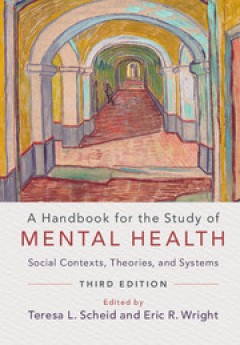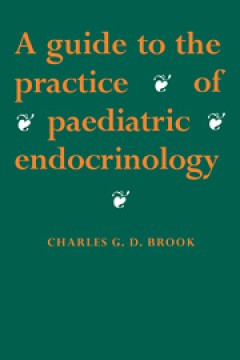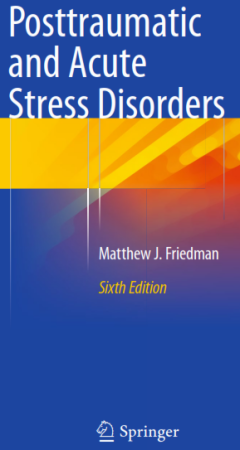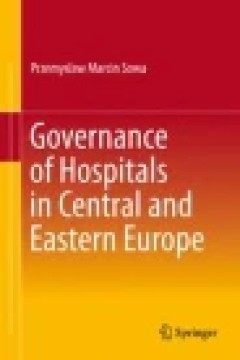Filter by

A Handbook for the Study of Mental Health
With chapters written by leading scholars and researchers, the third edition of A Handbook for the Study of Mental Health provides an updated, comprehensive review of the sociology of mental health. The volume presents an overview of the historical, social, and institutional frameworks for understanding mental health and illness. Part I examines the social factors that shape psychiatric diagnos…
- Edition
- -
- ISBN/ISSN
- 9781316471289
- Collation
- -
- Series Title
- -
- Call Number
- -

A Guide to the Practice of Paediatric Endocrinology
This concise and practical book is designed for paediatricians and endocrinologists, trained or in training, who see children with endocrine problems. All the endocrine glands are covered, and the author has distilled his vast experience and expertise in this area to provide hard-hitting, practical advice on the diagnosis, management and treatment of the main endocrine disorders. It is not a he…
- Edition
- -
- ISBN/ISSN
- 9780511526862
- Collation
- -
- Series Title
- -
- Call Number
- -
Reasoning and Public Health: New Ways of Coping with Uncertainty
This book argues that in order to be truly effective, public health must embrace a group of reasoning strategies that have traditionally been characterized as informal fallacies. It will be demonstrated that these strategies can facilitate judgements about complex public health issues in contexts of uncertainty. The book explains how scientists and lay people routinely resort to the use of the…
- Edition
- 1
- ISBN/ISSN
- 978-3-319-15013-0
- Collation
- XIII, 242
- Series Title
- -
- Call Number
- 153

Posttraumatic and Acute Stress Disorders
A handy, easy-to-read reference for the diagnosis and treatment of posttraumatic and acute stress disorders, this important 6th edition has been revised and updated extensively, offering a wealth of new information in a concise format of 6 sections. The new DSM-5 diagnostic criteria for PTSD and Acute Stress Disorder (ASD) are discussed, in depth, in Chapters 2 and 6, respectively. In addition,…
- Edition
- 6
- ISBN/ISSN
- 978-3-319-15066-6
- Collation
- XII, 155
- Series Title
- -
- Call Number
- 155.9042 FRI p

Governance of Hospitals in Central and Eastern Europe
This book presents a novel view of healthcare system transition in post-communist countries. It is the first region-wide comparative study of hospital governance in Eastern Europe. Comprehensive new material shows the evolution and significance of governance, complementing recent publications on the topic from industrialised countries. Throughout the book, governance is described and substantia…
- Edition
- -
- ISBN/ISSN
- 978-981-287-765-9
- Collation
- Health Economics
- Series Title
- -
- Call Number
- 330 SOW g

More Moments in Time Images of Exemplary Nursing
Within most disciplines, there are those who are recognized by their colleagues as being exceptionally competent practitioners. These individuals do their work in such a remarkable way as to become a model for others. This book is based on a study of the beliefs, actions, and interactions of a group of extraordinary oncology nurses—the people their peers would choose to have care for them if …
- Edition
- -
- ISBN/ISSN
- 978-1-897425-52-7
- Collation
- 249
- Series Title
- -
- Call Number
- 249 pages

Platinum Metals in the Environment
This edited volume presents new data and insights from the most internationally respected PGE experts, representing a variety of disciplines ranging from chemistry, geochemistry, biology, environmental science to toxicology and environmental health. It builds upon three previous co-edited books published by Springer, Zereini and Alt (Eds.) (1999, 2000 and 2006), incorporating the most recent ad…
- Edition
- 1
- ISBN/ISSN
- 978-3-662-44559-4
- Collation
- XXII, 492
- Series Title
- Environmental Science and Engineering
- Call Number
- 669.24 ZER p

Ethics for Radiation Protection in Medicine
This book presents an up to date ethical framework for radiological protection in medicine. It is consistent with the requirements of the system of radiation protection and with the expectations of medical ethics. It presents an approach rooted in the medical tradition, and alert to contemporary social expectations. It provides readers with a practical framework against which they can assess th…
- Edition
- -
- ISBN/ISSN
- 9781351372497
- Collation
- -
- Series Title
- -
- Call Number
- -

Informed Consent in Predictive Genetic Testing A Revised Model
This important book proposes revising the current informed consent protocol for predictive genetic testing to reflect the trend toward patient-centered medicine. Emphasizing the predictive aspect of testing, the author analyzes the state of informed consent procedure in terms of three components: comprehension of risk assessment, disclosure to select appropriate treatment, and voluntariness. Th…
- Edition
- -
- ISBN/ISSN
- 978-3-319-17415-0
- Collation
- VII, 232
- Series Title
- -
- Call Number
- 618 INF

A Generation at Risk
With a Foreword by Desmond Tutu, Generation at Risk brings insightful perspectives from experienced practitioners and researchers on how a better future can be secured for the millions of children who are being orphaned or made vulnerable by HIV/AIDS. The current situation of these children is grim, and while there has been significant action by governments, international organizations, religio…
- Edition
- Geoff Foster,Carol Levine,John Williamson
- ISBN/ISSN
- 9781139164436
- Collation
- -
- Series Title
- -
- Call Number
- -
 Computer Science, Information & General Works
Computer Science, Information & General Works  Philosophy & Psychology
Philosophy & Psychology  Religion
Religion  Social Sciences
Social Sciences  Language
Language  Pure Science
Pure Science  Applied Sciences
Applied Sciences  Art & Recreation
Art & Recreation  Literature
Literature  History & Geography
History & Geography